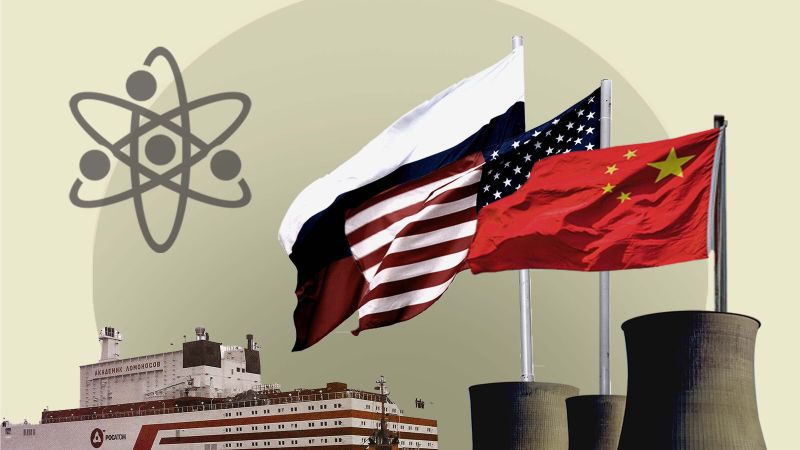Off the Siberian coast, not far from Alaska, a Russian ship has been docked at port for four years. The Akademik Lomonosov, the world’s first floating nuclear power plant, sends energy to around 200,000 people on land using next-wave nuclear technology: small modular reactors.
This technology is also being used below sea level. Dozens of US submarines lurking in the depths of the world’s oceans are propelled by SMRs, as the compact reactors are known.
SMRs — which are smaller and less costly to build than traditional, large-scale reactors — are fast becoming the next great hope for a nuclear renaissance as the world scrambles to cut fossil fuels. And the US, Russia and China are battling for dominance to build and sell them.



To my understanding we don’t have an energy problem. We have a problem of industrialization in combination with global capitalistic tendencies. No wonder the article mentions the following:
Also, taking into consideration how dangerous nuclear accidents are, not only I don’t feel any safer with this technology -no matter how much it is praised- I feel literally scared when I hear statements like:
The problem as I see it is all your statements are “I feel” and “I fear” with no sources about anything either way.
The following is related to SMRs:
Why Small Modular Nuclear Reactors Won’t Help Counter the Climate Crisis || By Arjun Makhijani, Ph.D. and M.V. Ramana, Ph.D.
And on the problem of Indutrialization some elements can be found here:
What Are Some of the Drawbacks of Industrialization? - Investopedia
Summary of “Seventeen Contradictions and the End of Capitalism” by David Harvey
Would the above satisfy you @JungleJim?
It certainly seems like there’s a point you’re making instead just “the sky is falling” so yes, thank you.
The risk of anything whatsoever happening to any given individual from nuclear is miniscule compared to the very real risk to literally everyone everywhere posed by coal and gas power…
We’re all on a runaway train barreling towards catastrophe, and you’re essentially saying the bathroom needs a floor mat so someone doesn’t slip and fall. That’s about how the risks compare
If that’s your take on my comment(s), I would suggest you take a 2nd look at them.
statistically they have a point. Coal mining has killed SEVERAL orders of magnitudes more people over its history, even oil and gas are relatively dangerous compared to nuclear. Nuclear is inline with both wind and solar roughly with the amount of yearly sustained injuries.
Personally, I don’t care about these statistics. The point I was trying to make was that under capitalism any industry has the goal to make huge amounts of profit. Coal, nuclear you name it. Nothing is about sustainability, unless it is related to greenwashing. So I don’t trust their approach, including the safety of these places. Also the need for more power is for industry expansion, not to heat our homes for instance.
[By the way, I am not a communist. Mondragon is a model of non-capitalistic industrial development that has been successfully expanding since the 1950’s. By no means am I saying their approach is perfect, nor that perfection is the goal. Their example is important tho cause we can learn from them. For the Cleveland Model, they used Modragon’s input. They refers to Gar Alperorovitz amongst others]
you should look into the stable salt reactor design.
Passively safe, inherently contained, and even when catastrophically failed, not a major concern. Many gen IV designs adhere to these sorts of principles. They’re just inherently safe now. The only way you can fuck them up is by actually just becoming a problem.
Nuclear waste storage is still a problem, but greatly reduced with fast reactor designs. For numerous reasons i won’t get into right now because this comment would be three pages long otherwise.
And besides, if you live near a coal plant you are actively consuming more harmful pollutants than if you were near a nuclear plant. Fun fact the japanese government evacuated people into areas WORSE than the initial areas they were in. This was due to gross negligence, but it was such a minor dosage, it basically didn’t matter anyway.